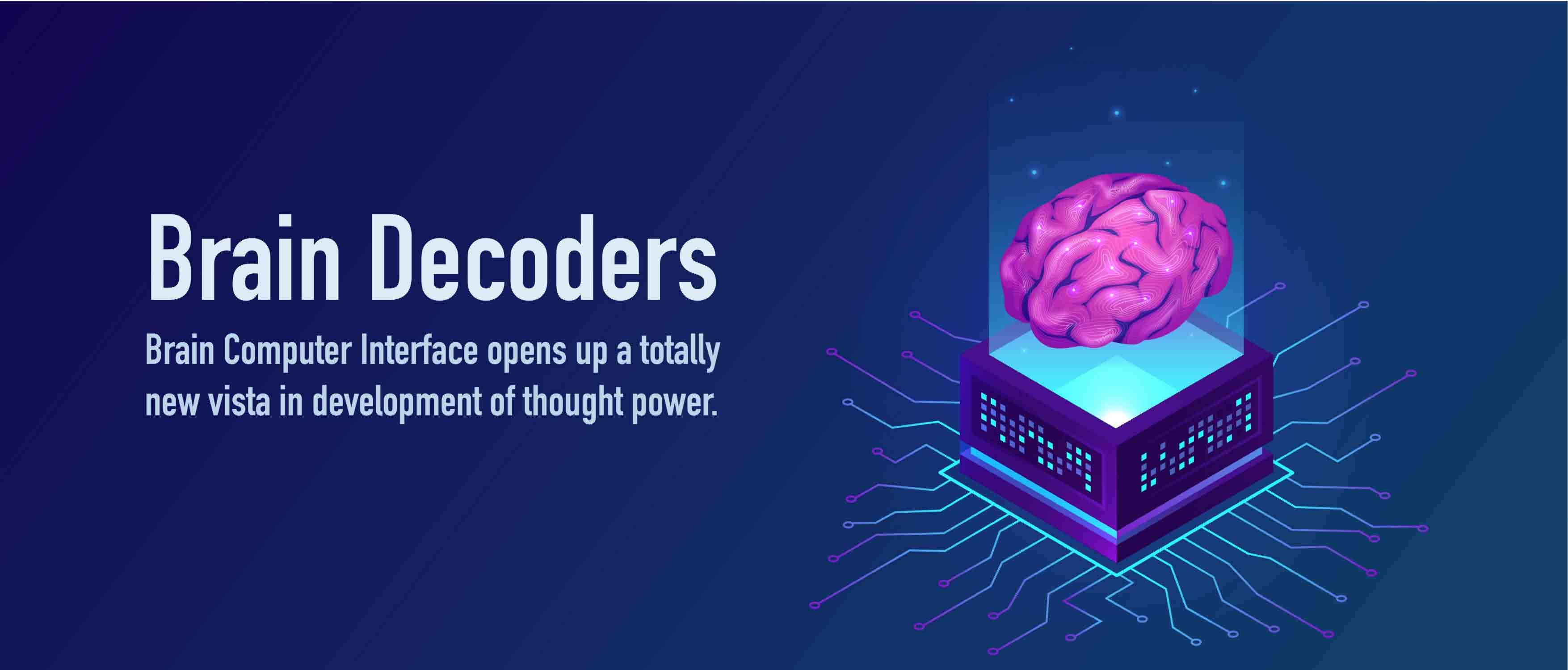Brain Decoders
April 8, 2020 | Expert Insights

Artificial Intelligence reading minds
On March 30, 2020, University of California published a paper in Nature Neuroscience, a respected international journal in Science. In the paper, Dr. Joseph G Makin and his colleagues have reported significant progress in the ability to decode what a person is saying, just by looking at their brain-waves. Earlier efforts in this field of research were severely limited.
In the paper, Dr Makin reports progress, through experiments with four volunteers. The volunteers were made to read sentences aloud, while electrodes attached externally to their heads, recorded simultaneous brain activity. The brain activity was fed into a computer-based AI system, which decoded the patterns and was able to reconstruct the original sentences. At this juncture, the decoder is limited to 30-50 sentences, but capacity is expected to improve.
In 2016, Elon Musk created Neuralink Corporation, in San Francisco, which was established to create implantable Brain-Computer Interfaces (BCI). At the inaugural function, Elon Musk explained that BCIs could help understand & treat brain-disorders as well as help preserve & enhance normal brain capacities. However, he cautioned that though the subject and applications were fascinating, progress would be slow.
Applications
A successful BCI could be invaluable for physically challenged patients, by empowering them to control devices such as smartphones and electric vehicles, with only their minds. BCIs should also be able to monitor the emotional state of employees. For e.g. employees performing high-risk jobs, such as pilots flying aircraft and soldiers performing operational roles, could be monitored in real-time, using BCI devices. By monitoring the emotional state of such high-risk performers, companies could enhance productivity, mitigate risk and improve safety. Other applications could be found in gaming, healthcare, aviation and trucking industries. The technology could also be adapted for use in job-interviewing, tracking employee productivity and monitoring dissent within organizations.
The Future
A future mind-reading device could be able to decode what you are thinking and feeling, with non-invasive technologies. In 2002, Stephen Spielberg directed the ‘Minority Report’, an award-winning science fiction movie. In the story, the psychic abilities of some talented individuals (precogs), were enhanced using brain-machine interfaces, to predict crime even before it happened.
Assessment
Computers are faster than the human brain, in solving complex mathematical problems, but they need programming and perform only repetitive functions. On the other hand, the human brain is versatile and can adapt to wide-ranging phenomena, from poetry to rocket science. Thus, most scientists would agree that the human brain is far more advanced than the current generation of supercomputers. The advent of BCI devices is likely to have a profound impact on human health, enhancing human brain capacities and improving social environments.
A word of caution, the technology has the potential to be misused. Implants made on some pretexts may be used to read thoughts and plant ideas, someday in the future.
Author: Major. Gen. Moni Chandi, Chief Strategic Officer, Synergia Foundation








Comments